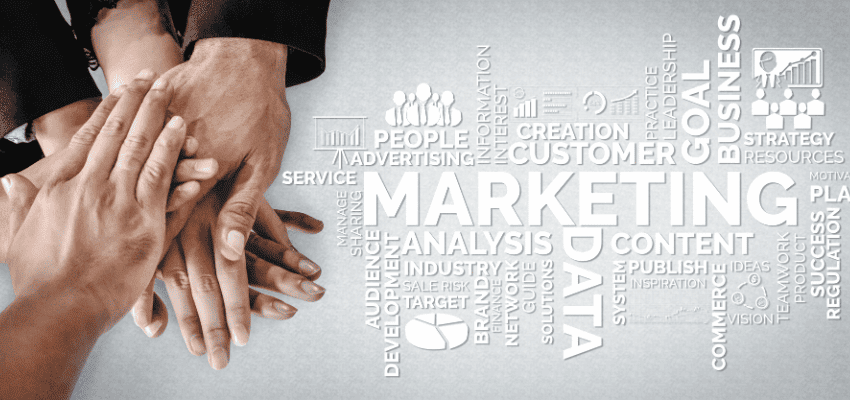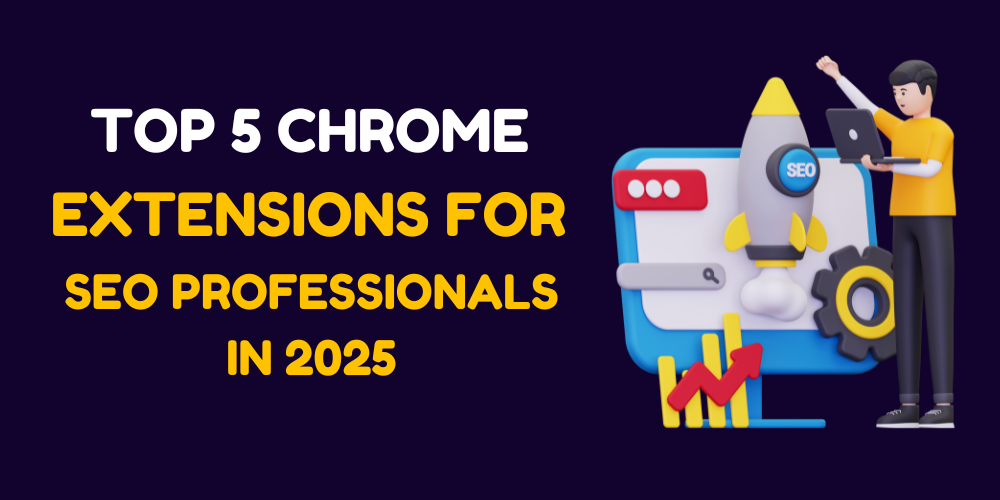Digital marketing is often defined as online marketing initiatives that display on a computer, phone, tablet, or other device. It can take several forms, such as online video, display advertisements, search engine marketing, paid social ads, and social media postings. Digital marketing is frequently contrasted to traditional marketing such as magazine advertisements, billboards, and direct mail. Oddly, television is frequently associated with conventional marketing.
A digital marketing plan enables you to engage with existing customers and others who are interested in your products or services using various digital channels such as social media, pay-per-click, search engine optimization, and email marketing. As a consequence, you may establish a brand, deliver an excellent customer experience, attract new consumers, and much more.
What is Digital Marketing?
Digital marketing, often known as online marketing, is the promotion of brands to potential clients using the internet and other kinds of digital communication. This encompasses not just email, social media, and web-based advertising, but also text and multimedia messaging as marketing channels.
Inbound vs digital marketing
Digital marketing and inbound marketing are often misunderstood, and for good cause. Many of the techniques used in digital marketing are similar to those used in inbound marketing, including email and web content. Both exist to attract prospects’ attention along the buyer’s journey and convert them into customers. However, the two methods have distinct perspectives on the link between the instrument and the aim.
B2B vs B2C Digital Marketing
Digital marketing tactics are effective for both B2B (business to business) and B2C (business to consumer) businesses, although best practices differ dramatically between the two. Here’s a closer look at how digital marketing is used to B2B and B2C marketing tactics.
Types of Digital Marketing
There are as many specializations in digital marketing as there are methods of communicating with digital media. Here are a few significant examples of various digital marketing methods.
Search engine optimization
SEO stands for search engine optimization. In basic words, SEO refers to the practice of enhancing your website’s visibility in Google, Microsoft Bing, and other search engines when people search for:
- Products you sell.
- Services you offer.
Information about areas in which you have extensive knowledge and/or experience.
The higher your pages’ visibility in search results, the more likely they are to be discovered and clicked on. Ultimately, the purpose of search engine optimization is to assist attract website visitors who will become consumers, clients, or a repeat audience.
Content marketing
As previously said, the quality of your content is an essential component of an optimized page. As a result, SEO plays a significant role in content marketing, a strategy cantered on distributing relevant and valuable material to a specific audience.Content marketing, like any other marketing technique, aims to generate leads who will eventually convert into consumers. However, it differs from traditional advertising. Instead, then luring prospects with the prospective value of a product or service, it provides value for free in the form of textual information, such as
- Blog posts.
- E-books
- Newsletters
- Video or audio transcripts
- Whitepapers
- Infographics
Social media marketing.
Social media marketing is the process of boosting traffic and brand exposure by engaging people in online discussions. You may utilize social media marketing to promote your business, products, services, culture, and so on. With billions of individuals active on social media sites, concentrating on social media marketing might be beneficial.
Facebook, Twitter, and Instagram are the most popular digital channels for social media marketing, closely followed by LinkedIn and YouTube. Finally, the social media channels you use for your business are determined by your goals and target audience. For example, if you want to obtain new leads for your FinTech firm, target your audience on LinkedIn, where industry professionals are active. Running Instagram social media advertisements, on the other hand, may be more beneficial to your brand if you run a B2C business aimed at younger customers.
Pay-per-click marketing.
Pay-per-click (PPC) is a type of digital marketing in which you pay a charge each time someone clicks on your digital adverts. So, rather than paying a predetermined sum to continuously display targeted advertising on online marketing channels, you only pay for the ads that people interact with. It’s a little trickier to determine how and when people will see your advertisement.
Affiliate marketing.
Affiliate marketing is a digital marketing strategy in which someone earns money by promoting another person’s business. The method is the same whether you are the promoter or a firm that works with the promoter.
It operates under a revenue-sharing approach. If you are an affiliate, you will receive a commission each time someone purchases the item you recommend. If you’re the merchant, you’ll pay the affiliate for each sale they help you make.
Native advertising
Native advertising is a disguised kind of internet marketing. Its purpose is to blend in with the surrounding information, making it less noticeable as advertising.
Native advertising was designed in response to today’s customers’ skepticism towards advertisements. Knowing that the producer of an ad pays to run it leads many people to believe that the ad is biased and hence disregard it.
A native ad overcomes this tendency by providing information or amusement before proceeding to anything commercial, minimizing the ad component.
Influencer marketing.
Influencer marketing, like affiliate marketing, is based on collaborating with an influencer (a person with a significant following, such as a celebrity, industry expert, or content provider) in return for visibility. In most situations, these influencers will recommend your items or services to their followers across many social media platforms.
Influencer marketing is effective for B2B and B2C organizations looking to reach new audiences. However, it is critical to collaborate with respectable influencers because they are ultimately representing your company. The improper influencer may erode consumers’ faith in your business.
Marketing Automation
Marketing automation software powers digital marketing initiatives, increasing advertising efficiency and relevance. As a consequence, you may concentrate on developing the plan for your digital marketing efforts rather than burdensome and time-consuming operations.
While marketing automation may appear to be an unnecessary tool for your organization, it may greatly boost connection between you and your audience.
Email Marketing
The idea behind email marketing is simple: send a promotional message and hope that your prospect clicks on it. However, the execution is far more complicated. First and foremost, ensure that your emails are wanted. This needs an opt-in list that accomplishes the following:
- Personalizes the information in both the body and the subject line.
- Indicates clearly what type of emails the subscriber will get.
- An email signature with a clear unsubscribes option.
- Integrates transactional and promotional emails.
- You want your prospects to view your campaign as a valuable service rather than merely a promotional tool.
Email marketing is an established and effective approach on its own. 89% of the pros polled said it was their most successful lead generator.
It’s even better if you use additional digital marketing tactics like marketing automation, which allows you to segment and schedule your emails to better match your customers’ demands.
If you’re contemplating email marketing, here are a few suggestions to help you produce outstanding emails.
Benefits of Digital Marketing
Digital marketing has grown in popularity due to its ability to reach a huge audience. However, it also provides a number of other benefits that might help your marketing efforts. Here are some of the advantages of digital marketing.
A large geographical reach.
When you submit an ad online, anyone can view it from anywhere (assuming you haven’t geo-restricted it). This makes it simple to expand your business’s market reach and engage with a broader audience via various digital platforms.
Efficiency in costs
Not only can digital marketing reach a larger audience than conventional marketing, but it also costs less. The overhead expenditures for newspaper advertisements, television commercials, and other traditional marketing options can be costly. They also provide you less control over whether your intended audience will receive such communications in the first place.
With digital marketing, you may develop a single content piece that will attract readers to your blog as long as it is live. You may set up an email marketing campaign to send messages to selected consumer groups on a regular basis, and you can easily adjust the timetable or content if necessary.
When you sum it all up, digital marketing provides you with far more flexibility and client interaction for your ad budget.
Quantifiable results
To determine whether your marketing plan is effective, you must determine the number of clients it attracts and the amount of income it generates. But how can you accomplish it with a non-digital marketing strategy?
There’s always the classic approach of asking each consumer, how did you find us?
Unfortunately, that does not apply to all sectors. Many businesses do not have one-on-one talks with their clients, and surveys may not always produce comprehensive data.
Monitoring the outcomes of digital marketing is straightforward. Digital marketing software and platforms automatically measure the amount of targeted conversions, such as email open rates, home page views, and direct transactions.
Frequently Asked Questions
What are the primary sorts of digital marketing?
The primary categories of digital marketing include Search Engine Optimization (SEO), Social Media Marketing (SMM), Content Marketing, Email Marketing, and Pay-Per-Click (PPC) Advertising.
How do I select the best sort of digital marketing for my business?
The ideal digital marketing kind is determined by a variety of criteria, including your target demographic, business goals, budget, and industry. Conducting extensive study and analysing your individual requirements might help you make an informed conclusion.
What is the significance of SEO in digital marketing?
SEO is important in digital marketing since it increases your website’s exposure in search engine results pages (SERPs). It entails improving your website’s content, structure, and backlinks in order to rank better for relevant keywords and increase organic traffic.
How would social media marketing help my business?
Answer: Social media marketing enables businesses to reach their target audience, raise brand recognition, boost website traffic, and create leads. It allows you to interact with your audience in real time, create connections, and successfully market your products or services.
Why is content marketing essential in digital marketing strategies?
Answer: information marketing is vital in digital marketing strategies because it attracts, engages, and converts potential consumers by providing useful, relevant, and consistent information. It positions your business as an industry authority, builds trust with your target audience, and encourages lucrative consumer action.





I don’t think the title of your article matches the content lol. Just kidding, mainly because I had some doubts after reading the article.